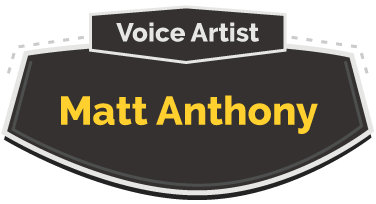News-Talk
Our world consists of multiple levels of human emotion. We struggle to make sense of it somedays. That emotion is presented to us, or so it seems, in a non-stop pattern of information, opinion, and drama.
Never before has the ‘news-talk’ format in radio been more controversial, more ‘needed’, and more challenged. Years ago, before radio stations became 24/7 repositories of breaking news, sports updates, and ‘weather on the 5’s’, these full-service stations were heroes to a community, a pillar of strength, endurance, and trust.
One of the joys of my career has been the opportunity to be a part of some fairly historic call-letters. And none are more historic than ‘The Voice of Pittsburgh’, KDKA. At the time, I was working for an all-sports station in Washington, DC, basically acting as a Creative Services Director. I was writing, voicing, and producing imaging content for WTEM-AM, as well as contributing content within the station’s role as the flagship for the Washington Capitals.
The ‘voice’ of one of our stations in the DC cluster was Ann DeWig, who was also working for one of our FM stations. She had informed me that a friend of hers had been aware of an opening in Pittsburgh. I looked at this as a way to get a bit closer to home, in Ohio. So I applied, and was later hired.
Washington, DC and Pittsburgh could not have been more different. While DC was a melting pot of people from all over the world with an enormous transient population, Pittsburgh was the complete opposite. Although it is a very ethnic city, many people I encountered had grown up in Pittsburgh, were raised in Pittsburgh, and had absolutely no interest in leaving Pittsburgh
The other thing that tied people together in Pittsburgh was their affection for KDKA. This was my first true journey in to working for a radio station that was as big as its mystique. KDKA billed itself as ‘The World’s First Radio Station’. It had a long history of vibrant on-air personalities and bigger-than-life news-personalities. Sometimes, at night, when I would drive home and I would hear a short promo that on-air that I had put together earlier that day, I couldn’t believe that my voice was actually emerging from that ‘1020’ AM dial-position.
But News-Talk stations have changed, and so has the scope of their influence. I think this has been a result of the varied platforms from where we get our information. The need to ‘be connected’ is no longer served, specifically, by a full-service radio station. So, the platforms of news-talk stations have changed.
Is this bad? I suppose it all depends on how you look at it. Traditional news-radio stations require a healthy amount of people to make it work effectively. And because radio station budgets have been diminished over the years, it’s been more challenging to operate a full-service News-Talk station. You need hosts. You need news-anchors. You need reporters covering neighborhoods, producers to help put talk shows together, and sports reporters to cover the city’s teams. A newsroom can be an expensive endeavor from a ‘cost’ perspective.
The other challenge, too, is ‘time’. Now, our news can reach us in a matter of seconds. Our Twitter feeds and Facebook accounts report the news…and the sports….and the weather….to us in amazingly rapid fashion. Can a modern newsroom in a typical full-service station compete?
On the surface, one would say ‘of course not’. But I contend that the modern news-talk format, going forward, needs to impart some of that original KDKA magic!
One of the things I noticed about KDKA is that it an unmatched commitment to Pittsburgh and to western Pennsylvania. There was a ‘trust’ factor that I had never witnessed before in a broadcast entity. Were there people who preferred other news sources, or people who simply didn’t like KDKA? Of course. But the station had such heritage that it only magnified that trust-factor.
It celebrated the fabric of what made Pittsburgh a great place to live. It celebrated its achievements. It mourned its losses. And it also had no problems calling attention to its deficiencies, and it help officials and government leaders accountable.
In short, it offered something to Pittsburghers that they could not get on a national news platform. It celebrated its local connection.
My role within the construct of the modern news-talk station is to present that station’s image without bias or prejudice. However, I also want to help the station celebrate that region’s greatness. The offerings of the modern news-talk station, just like the offerings of the modern city, are really like a buffet. There are many working parts, and those parts come with opinion, passion, and strong feelings. That presentation has to be able to give its listeners something that they can’t get from the national networks. In a sense, it has to emulate some of the great virtues that was once, and still is, a part of KDKA, and the dozens of historic full-service stations like it.
I look forward to going on that journey with you and your news-talk outlet!

